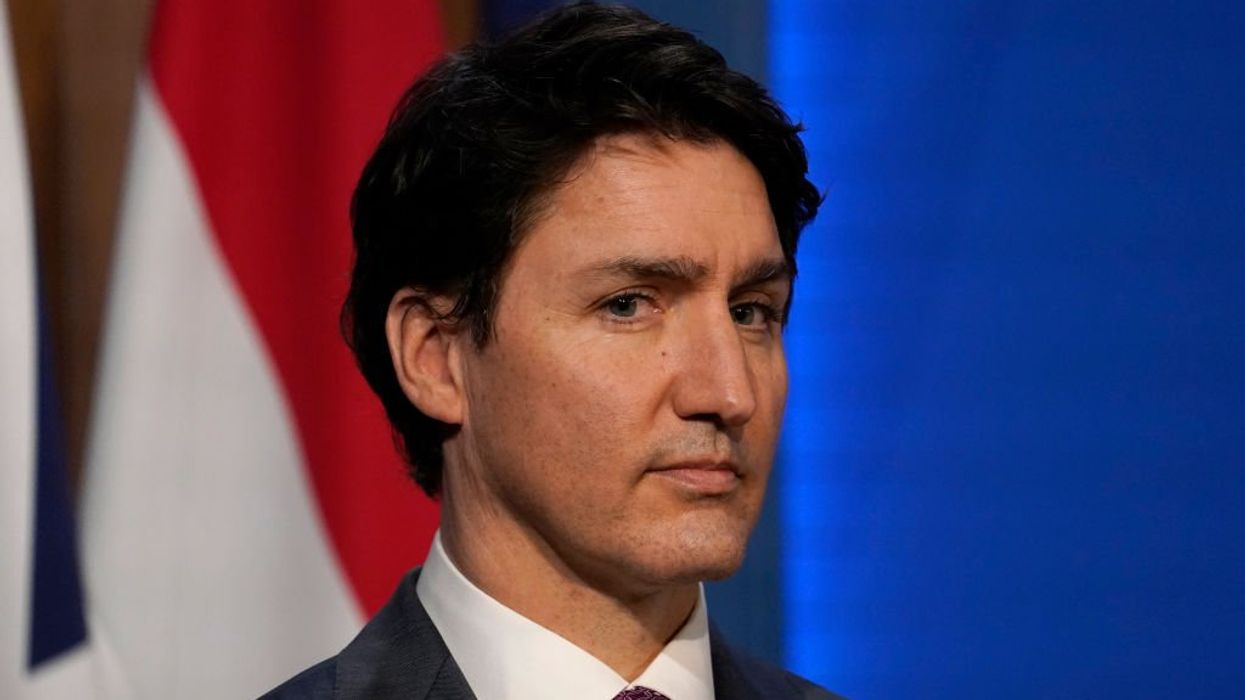
Photo by Alberto Pezzali - WPA Pool/Getty Images

Canada is one of several Western nations rushing to loosen the laws around euthanasia. While its expansion of access to voluntary extermination by the state can be attributed in part to a concerted campaign in recent years by the leftist Trudeau government, it is clear that a significant portion of the population is also on board.
A new survey from the Vancouver-based market research outfit Research Co. has found that 73% of Canadians support the current euthanasia regime in Canada, whereby adults with an irremediable medical condition can consent to be put down by the state. However, a significant cohort of younger respondents indicated a keenness to radically expand the option to the poor and the homeless.
Mario Canseco, president of Research Co., indicated that on the basis of a poll conducted from April 22 to April 24 among 1,000 adults:
The responses varied greatly by generational cohort.
60% of respondents in the 18-34 age group said that a person with a disability should be able to request a state-administered suicide. By way of comparison, 46% of respondents in the 35-54 age group and 44% of those in the 55+ age group suggested that the disabled should be eligible for voluntary extermination.
41% of those in the 18-34 age group answered that homelessness was a good enough reason for state-assisted suicide. 29% of respondents in the 35-54 age group agreed that the homeless should be given a legal lethal way out by the Canadian government.
Zoomers and Millennials majoritively (55%) reportedly reckon mental illness is a justifiable reason for state-assisted suicide.
TheBlaze previously reported that as of March 17, 2023, Canadians whose only medical condition is a mental illness are able to request state-assisted euthanasia. That includes persons suffering from depression, bipolar disorder, PTSD, and various other mental issues.
Some suspect a correlation between this apparent support for the state's elimination of the weak and infirm and the decline of religion in Canada — a nation that recently removed all Christian religious imagery from its heraldry and has witnessed a precipitous decline in regular religious engagement.
Historian and broadcaster Tom Holland said of the survey results, "Now, this really IS post-Christian."
Marry Harrington, an editor at Unherd, similarly remarked, "Welcome to post-Christian social ethics."
Statistics Canada indicated that whereas religious affiliation was approximately 85% among Canadians born between 1940 and 1959, that number is 32% for those born between 1980 and 1999, reported Global News.
David Brooks, writing in the Atlantic, indicated that the euthanasia laws seen in Canada and elsewhere throughout the Anglosphere reveal what "happens when a society takes individualism to its logical conclusion."
While Brooks suggested Canada's so-called Medical Assistance in Dying program was originally "well defined," he acknowledges that the movement to extinguish complicated lives raced precisely to those extremes where critics like Cardinal Thomas Collins of Toronto said it would go.
Collins wrote in 2020, "Pain medication and other resources and procedures can indeed be used effectively to medically assist people who are dying. But that is not what MAiD involves: it means giving a lethal injection to people who are not dying, so that they will die."
"Those who oppose euthanasia expressed concern in 2016, when it was first legalized, that once the state legally provided death for some, it would only be a matter of time before its criteria would be expanded," wrote Collins. "This was dismissed as a slippery slope argument; we were told that 'safeguards' would protect the most vulnerable. Now, less than four years later, we are far down the slope."
Collins stressed that those persons whom younger Canadians now see as prime candidates for voluntary extermination "should never be seen as a burden to our society. These people need assisted living, not assisted death."
In his Atlantic piece, Brooks wrote, "As assisted suicide has become an established part of Canadian society, the complex moral issues surrounding the end of life have drifted out of sight. Decisions tend to be made within a bureaucratic context, where utilitarian considerations can come to dominate the foreground."
Over 10,000 Canadians were put down by the state via MAID in 2021, making up 3.3% of all deaths in Canada that year. Well over 31,664 Canadians have been killed via the MAID program since 2016.
81% of euthanasia requests were approved.
The Spectator noted last year how, prior to the legalization of the MAID amendments, Canada's parliamentary budget officer released a report indicating how much money would be saved as a result of Bill C-7, which broadened and loosened the language of Canada's euthanasia law. Extra to the $86.9 million per year previously saved by state-facilitated killings, an additional $62 million in costs would be reduced.
The Trudeau government recognized that it could save money by taking lives, even if the taxpayers had to pay $2,327 every time a fellow citizen reached the breaking point.
The man credited with founding the Canadian health care system, Tommy Douglas, was a eugenicist who advocated for the sterilization and segregation of some of the very people now being exterminated by the state.
Like Blaze News? Bypass the censors, sign up for our newsletters, and get stories like this direct to your inbox. Sign up here!